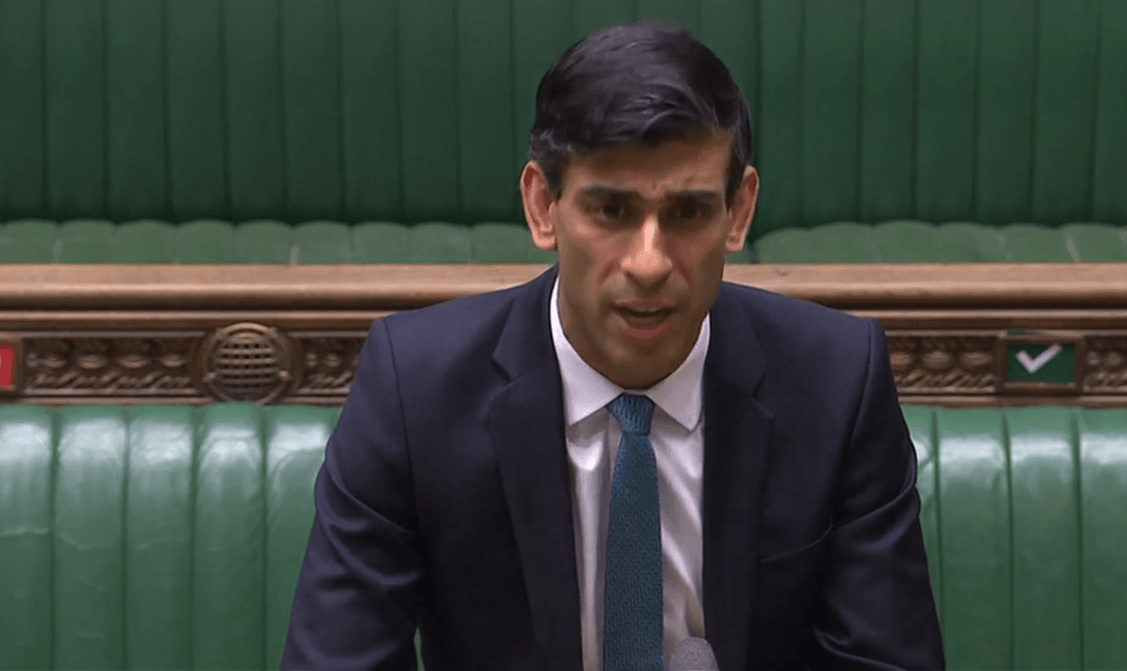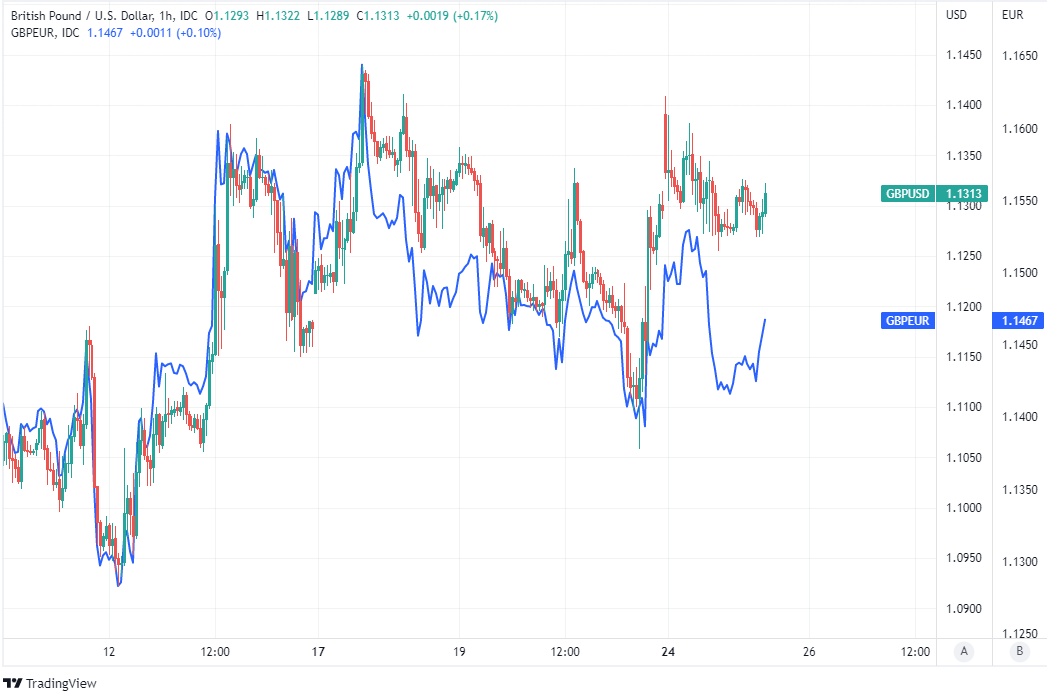Pound Sterling's New Prime Minister: Analyst and Economist Views
- Written by: James Skinner
-

Above: File image of Rishi Sunak. Image © Pound Sterling Live, House of Commons, parliament.tv.
The Pound got off to a strong start this week but its rebound stalled after former Chancellor Rishi Sunak was confirmed as the next Prime Minister in waiting following a Conservative Party leadership election that will have significant implications for Sterling and the UK economy in the months ahead.
Sterling rose against most major currencies to open the new week after former Prime Minister Boris Johnson dropped out of the race for the Prime Minister's office, leaving former Chancellor Rishi Sunak on course for a coronation that is set to produce the UK's fifth Prime Minister in the last six years on Tuesday.
However, the Pound's early gains were quick to melt away after newly-selected Prime Minister Rishi Sunak warned of hard times ahead for the economy and difficult decisions relating to the public finances in an address to parliament.
All of this came hard on the heels of S&P Global PMI surveys suggesting the UK manufacturing and services sectors slipped deeper into recession in October.

These were just the latest in a growing list of indicators suggesting the economy slowed faster than was expected by the Bank of England and other forecasters for last quarter, potentially marking the beginning of a downturn that recent BoE forecasts warned could run for up to five quarters.
But any downturn would risk being exacerbated in the months ahead if the new government under Prime Minister Sunak goes ahead with widely expected cuts to public spending as part of a forthcoming effort to balance the national books.
A more frugal approach to the national finances has been committed to and is one reason why Tuesday's coronation will have significant implications for the economic outlook in the months and quarters ahead.
Some of these are outlined below by analysts and economists below.
Chris Turner, global head of markets and regional head of research, ING Group
"Rishi Sunak will be given the keys to 10 Downing Street today. He has talked up the 'profound' challenges facing the UK economy, following on from Chancellor Jeremy Hunt's remarks that 'eye-watering' decisions will have to be made on spending decisions."
"Sunak has been voted in on a ticket of fiscal rectitude which may be good for gilts, but less good for sterling."
"Clearly, 31 October is going to be another massive day for UK financial markets as Sunak/Hunt present their fiscal fix. But backing the dollar as we do, we doubt GBP/USD needs to trade above 1.15 and retain sub 1.10 targets for later in the year. EUR/GBP to trace out a 0.8650-0.8800 range for the time being.
Andrew Goodwin, chief UK economist, Oxford Economics
"We believe Rishi Sunak as prime minister presents some upsides for the UK economic outlook. But that fiscal and monetary policy are both set to tighten into a likely recession means a return to economic orthodoxy carries risks of its own."
"The new leader will almost certainly stick with Chancellor Jeremy Hunt's U-turns on September's "mini-Budget" tax cuts. One of the most significant of those reversals – Hunt's decision to raise corporation tax next April – was planned by Sunak when he was Chancellor."
"The prospect of a more 'prudent' approach to public finances is probably one factor behind the favourable market reaction to the new prime minister's appointment. Gilt yields have fallen back further today, as have investors' expectations of how high the BoE policy rate is headed (the latter helping to explain only a muted reaction from sterling). "
Philip Shaw, chief UK economist, Investec
"Markets had largely priced in a Sunak victory first thing this morning after Boris Johnson exited the race yesterday. Sterling is a touch below $1.13, while 10-year yields are currently at 3.81%, some 23 basis points lower on the day. Looking ahead Mr Sunak and his Chancellor will have to earn any further market rallies."
"As far as monetary policy is concerned, we still expect another hike from the Bank of England Monetary Policy Committee on Thursday next week. The turn of events though over the past week should mean that members are mulling a smaller move than after the abandoned ‘mini’-Budget on 23 September."
"Our current call is for a 75bp hike in the Bank rate to 3.0%, which is broadly what UK interest-rate markets are pricing in."
Charles Hepworth, investment director, GAM Investments
“While the pound attempted a no-Boris Johnson relief rally following his withdrawal from the leadership contest late last night, the new heir apparent to the keys of Number 10, Rishi Sunak, hasn’t exactly set the markets on fire just yet. Sterling has erased most of its rally."
"Markets now assume that the Bank of England will have to be less aggressive on interest rate policy, as the fiscal giveaway suitcase has had its lid firmly shut again. With no tax cuts on the horizon, the immediate future looks bleak for UK consumers with the economy no doubt already in recession."
Adam Cole, chief FX strategist, RBC Capital Markets
"With the UK’s next PM decided and Sunak marking a decisive swing back to fiscal orthodoxy, the risk premium carried by GBP assets has compressed back to levels that prevailed ahead of the disruption caused by the mini-Budget on September 23."
"Although unobservable, it seems reasonable to think the premium in the currency has done the same."
"While the premium associated with September’s reckless fiscal policy actions may have been removed, that does not take us back to a neutral view on GBP. The UK’s structural imbalances existed before those policy changes and they are still a longer-term concern for the currency."
"The UK’s structural budget deficit of around 6% of GDP is one of the largest in the developed world and with no surplus of private savings (unlike Japan and Italy who have similarly large public deficits), the UK is entirely dependent of foreign capital to fund its domestic imbalances."
"Our GBP view has to incorporate the risk that keeping the foreign capital flowing requires UK assets to cheapen further relative to the rest of the world and a weaker currency is part of the mechanism by which that happens."
Dean Turner, chief UK Economist, UBS Global Wealth Management
"The market reaction to Johnson’s withdrawal and Sunak’s win has seen gilt yields fall sharply across the curve, while the pound has been steady against the major crosses. Sunak’s victory will not call a halt to the political volatility in the UK, but the temperature should cool significantly.”
"The change in UK government is likely to reduce the risk of strong dips in GBPUSD. Nevertheless, economic conditions still speak for a weaker pound. For the time being, we expect cable to be buffeted by the news flow, likely trading around the 1.10 level through the coming months."

